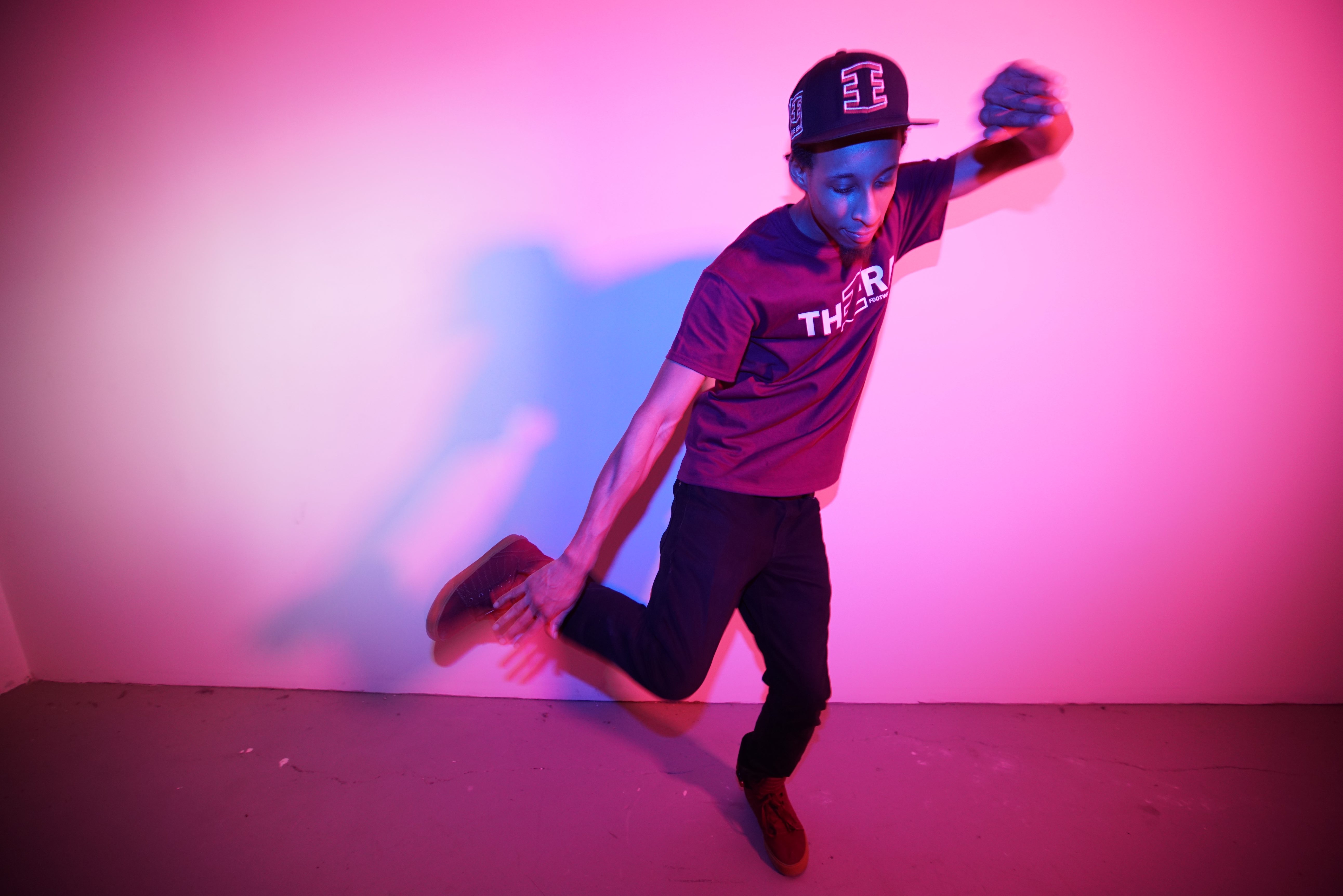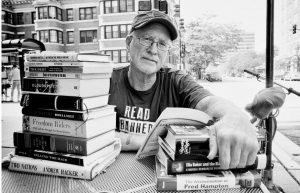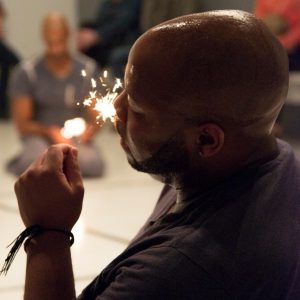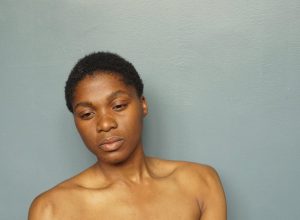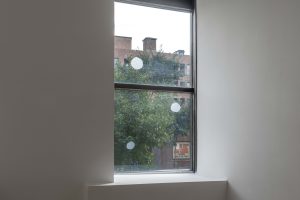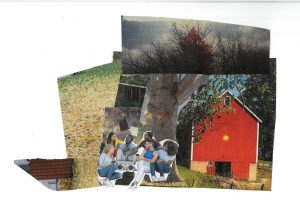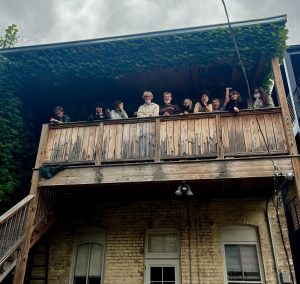Movement Matters investigates work at the intersection of dance, performance, politics, policy and issues related to the body as the locus of these and related socio-cultural dialogues on race, gender, ability and more. For this installment, we sit down with Jamal “Bulb” Oliver, a founding member of The Era footwork crew to discuss his roots in the Juke and House scenes, coming up through various dance crews, their battles and living The Era life of today’s international renown.
Michael Workman: What was it like for you growing up as a dancer in Chicago?
James “Bulb” Oliver: I’m from out west–63rd and Albany, right around Kedzie. I pretty much grew up over there all through childhood and high school. At least [until] my first couple years of college. Then, I broke off and moved around to the east side. I was everywhere, though, growing up. I was getting into footwork and playing basketball. Growing up around there you had sports, you had kids around the neighborhood doing kids’ stuff. I don’t know how it is now, I haven’t been over there in awhile, but then, everybody kick it in their hood together and footwork was around. When I was a shorty, I was the kid at all the family functions that knew how to dance like Usher and Michael Jackson.
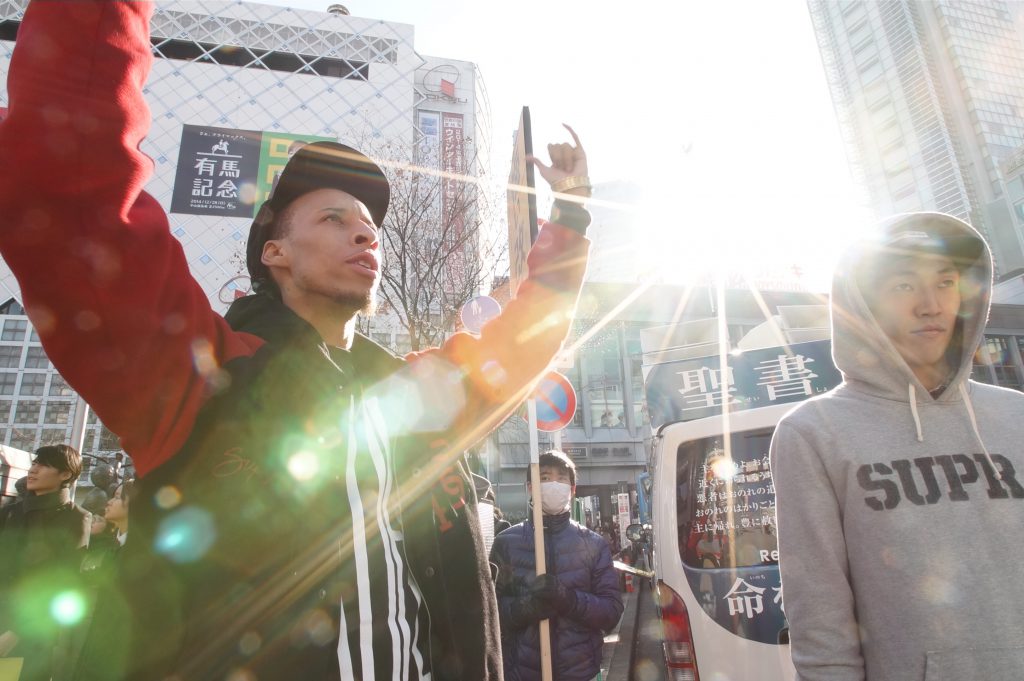
MW: So you would dance at house parties and that sort of thing?
JBO: It was local. Everybody would go to those [parties]. But nah, I wouldn’t go to that when I was younger because I was going to school. [In school], there was house music, footwork and juke music–like they’re playing now. But I came around like in the 2000’s so, in the ’90’s there was juke music playing. When I got to high school I joined my first dance group–that was my freshman year. It was called Total Impact. That wasn’t even footwork. It was pretty much a group of guys in a band–they were upperclassmen. They knew how to sing, they actually went viral on Facebook a couple weeks ago. They’re known for singing on Jackson at the blue line. I started with these guys and they pretty much taught me dancing. After I joined a band during one show I tried footwork. It was horrible, but I [still] tried it on stage in front of everybody. They thought it was okay. I wasn’t really in the realm of footwork, but I was just trying to see because I was known in the high school for doing it. I knew it was weak. It was weak to the people who were really doing it outside of my school.
I was like 16, almost 17 when I first tried it. I’d seen people doing footwork and if you were from Chicago that was just a thing to do. Know what I’m saying? There wasn’t really YouTube in the 90s, but [when it came around] I started looking up footwork and [teaching myself]. After the first time I got on stage, I just kept building.
My sophomore year I joined a group outside of my school, a local community dance group called Alpha and Omega. From there, I started getting into my own style. When I was older I was taking the bus everywhere and making a local name around the Englewood and Oak Lawn area.
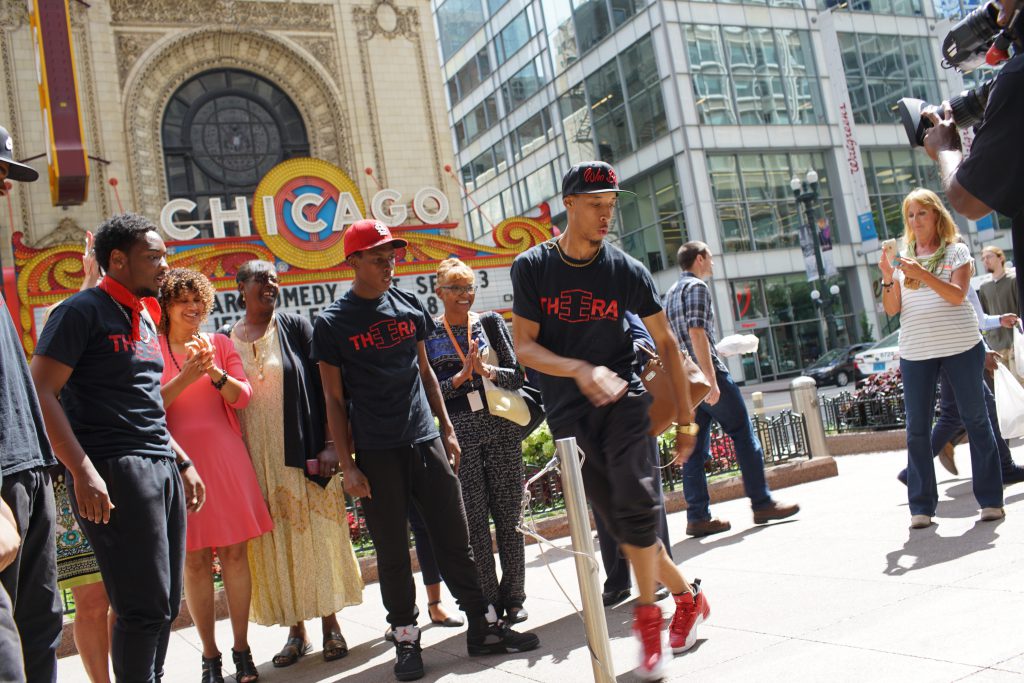
MW: Was it a situation where you had mentors out of the community or whose work was inspiring your work in specific ways?
JBO: I didn’t really have mentors. I was just doing it all myself back then. There wasn’t really anybody trying to teach me anything. I think I learned a few moves from old crews [and styles]–like house. But I was pretty much observing and doing my own thing and people respected my style. I was always energetic and was always the first one to dance–always in the circle.
I joined a larger group run by Latisha Waters. She’s like a old school footwork legend that used to be at all the parties at Union Hall and the skating rinks. She had an all-dance group called 3rd Dimension. I joined that group. It was funny because Nicole, founder of The Era, she was in 3rd Dimension back then but we just didn’t know or weren’t cool with each other. This was a very, very large group. Tish also had a tie to a larger group called Terra Squad and they were a battle group from back in the 2000’s that was pretty much one of the top groups that had all the legendary members from back in the day. They had made their own path. And Tish knew them. They came to a 3rd Dimension practice one day–AG, the leader of the group, and Tyrone [Taylor] the president–and I battled them. It was pretty much the three of us versus AG and TY. At my first battle, they told me about tryouts [with Terra Squad] and went. There were so many people that came but I was one of six who made it–I was pretty much the number one pick out of those 6. There were even people that were kicked out of the group who had to tryout again. It was a crazy ordeal for me to make it like that because it was extremely hard to get in the group. But then once I got in Terra Squad that was officially my first day in the industry as a footworker in the larger industry in Chicago. I was officially in it.
That same night, we went to a party. All the way out west, we was in the 100’s, all the way out south, there was like 50 of us in the group and literally killed the whole party. I couldn’t even believe it was my first day in the industry. There were fifty people in one crowd battling during the whole party. That was one of the memorable parts of my life in terms of footwork, straight up. I went to every battle and every event, making my way up in the rankings through Terra Squad. I wasn’t really all that good, but I was getting better coming up under AG, Speedball and all the other leaders. You learned everything and was mentored by the whole T.S. and all the original members who were going through the struggles, going through the trials, going through the footwork and having to battle all across the city. We were taking the bus everywhere, still going to school, leaving school early just to go be a part of certain events. All kinds of stuff happened growing up being a footworker.
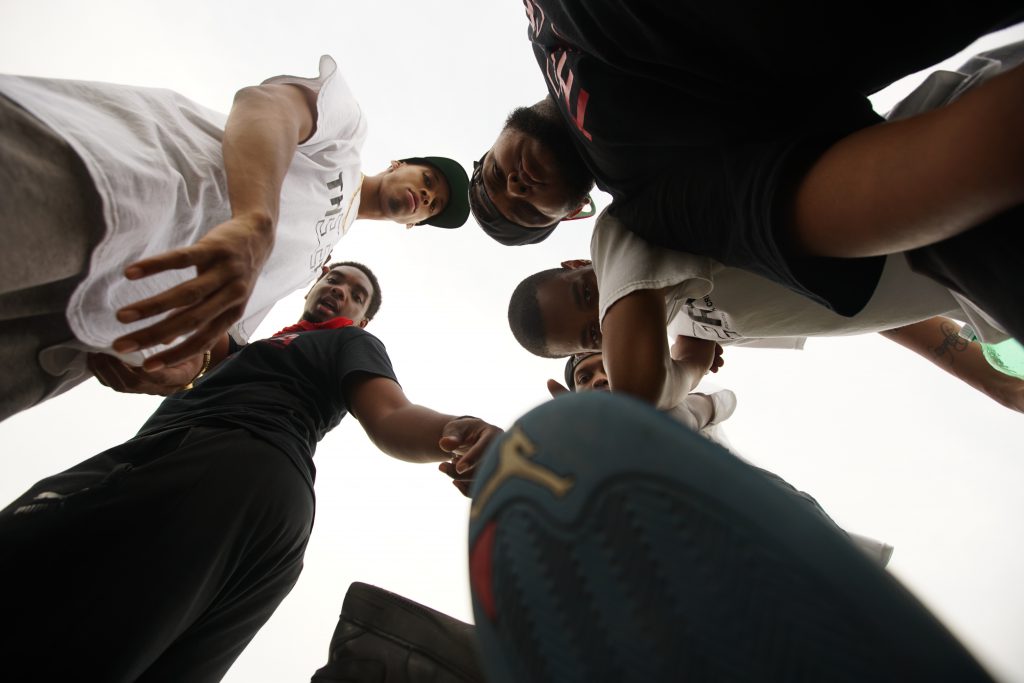
MW: So that was how you came up in the Chicago industry, but then how did it make the leap to this international touring?
JBO: In my first year I was King of the Circle. That was big for me–to be a first year person, make it all the way to the finals and be competing. When I placed in the finals, it gave me a lot of respect from the community in Chicago. From there, I just needed to build my name. But at the time in Terra Squad I was one of the youngest members. They had it set up for me to take over Terra Squad and they were recruiting new members. It just so happened that they were recruiting after King of the Circle. I was trying to figure out what to do next.
Manny and Steve-O tried out for Terra Squad and they made it, too. It was funny because they were my age and everybody in Terra Squad was older than me at the time. So they were learning from everybody and me at the same time. They started doing stuff outside the group. We got cool because we were the same age and [we] started doing stuff together. They were 16 or 17 and I was 20 or 21? I was a lot older than [they were], but we got super cool inside Terra Squad. From there we just kept building.
[Around] 2010 or 2011 DJ Spin [told] me, “Man, you should get your passport and go overseas.” He had been making music, making records and [had] already been traveling and pushing the footwork culture and music outside of Chicago. Their first large tour was overseas–as far as one with a record label–and they wanted to bring footworkers. I pretty much had been asked to come but still had to do all the work to raise the money to get a passport.
Featured Image: Litebulb at MANA, 2015. Photo by Wills Glasspiegel.
Please feel free to send questions, comments or tips to Michael Workman at michael.workman1@gmail.com. Each month, as part of the Movement Matters series, a live conversation on subjects raised in the columns takes place with interviewees and experts in the field. Please join the Movement Matters Facebook page for updates, archives of Facebook Live broadcasts of these discourses, and to join in on future conversations.
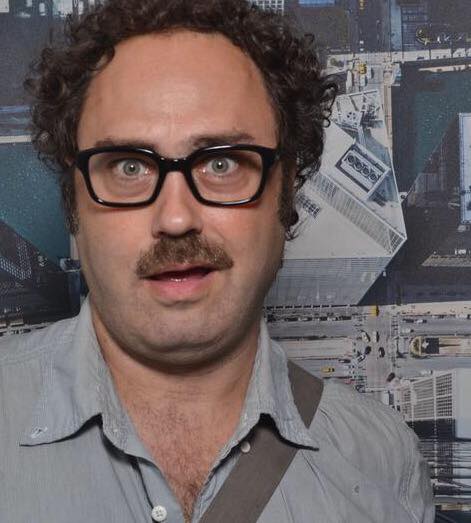 Michael Workman is an artist, writer, dance, performance art and sociocultural critic, theorist, dramaturge, choreographer, reporter, poet, novelist and curator of numerous art, literary and theatrical productions over the years. In addition to his work at The Guardian US, Newcity, Sixty and elsewhere, Workman has also served as a reporter for WBEZ Chicago Public Radio, and as Chicago correspondent for Italian art magazine Flash Art. He is also Director of Bridge, a Chicago-based 501 c (3) publishing and programming organization. You can follow his daily antics on Facebook.
Michael Workman is an artist, writer, dance, performance art and sociocultural critic, theorist, dramaturge, choreographer, reporter, poet, novelist and curator of numerous art, literary and theatrical productions over the years. In addition to his work at The Guardian US, Newcity, Sixty and elsewhere, Workman has also served as a reporter for WBEZ Chicago Public Radio, and as Chicago correspondent for Italian art magazine Flash Art. He is also Director of Bridge, a Chicago-based 501 c (3) publishing and programming organization. You can follow his daily antics on Facebook.
